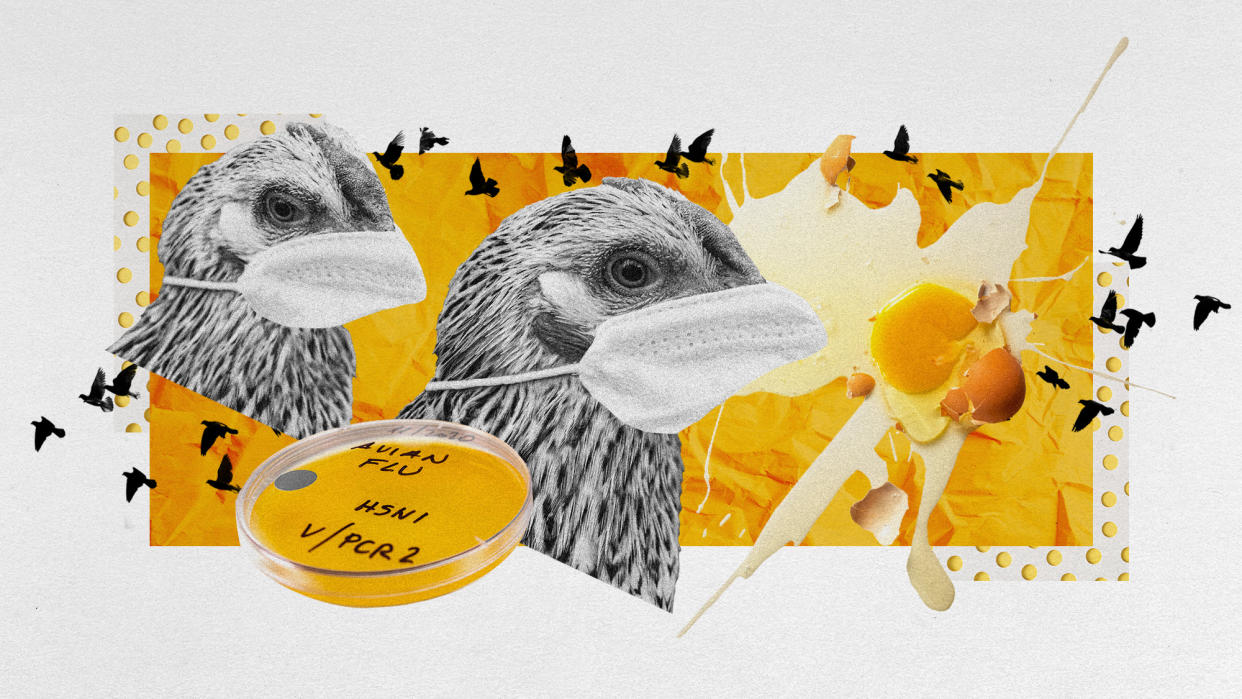The bird flu fight is faltering

America is stumbling in its battle against the bird flu. A mishmash of federal agencies are "slowing the country's ability to track and control" the virus, said The Washington Post, a faltering response that "has echoes of the early days of 2020" and the beginning of the Covid pandemic. There are reasons to be concerned: A Texas dairy worker was sickened by bird flu, the second U.S. case of human transmission.
"This may be our last chance to halt bird flu in humans, and we are blowing it," Zeynep Tufekci said in The New York Times. There might be only one detected human case, but that's a flashing red light. "By the time we've detected 10, it's probably too late" to stop the spread, one expert said. The problem? Authorities don't seem to know what's going on, and they're not quickly sharing what they do know. It's all too reminiscent of the last viral disaster, but with an edge. "Four years later we have an added layer of polarization and distrust to work around."
The biggest source of concern right now is an outbreak in dairy cows, which has spread to at least eight midwestern states. Farmers are "increasingly worried about the health of our animals, the safety of our farm workers, and the outlook for our markets," Ken Nobis said at Agri-Pulse. The onslaught was unexpected. This means that "farmers currently have few options for treating the virus or containing its spread."
'Tepid and opaque'
The virus has "ravaged the US poultry industry" since 2022, Kenny Torrella said at Vox. Despite that, the U.S. Department of Agriculture has offered a "tepid and opaque" response to the spread — slow to track the jump from birds to cows, and similarly unhurried to share information about the virus' genetic sequencing. The challenge: The agency is responsible for both regulating and promoting American agriculture. That's an "irresolvable conflict" which results in an approach that's "heavy on the promotion and light on the regulation."
It's time to "demonstrate that we've learned the lessons of the COVID-19 pandemic," Jaime M. Yassif said at CNN. That means ramping up vaccine funding, increasing livestock surveillance and stepping up emergency response planning. There is no time for governments — in America and around the world — to see what happens next: "If they wait for a confirmed outbreak among people, it will be extremely difficult to prevent the uncontrolled spread of the virus."
"We shouldn't panic if bird flu becomes the next pandemic," Leana S. Wen said at The Washington Post. The federal government has improved access to "personal protective equipment such as masks, gowns and goggles" and stockpiles of medications like Tamiflu. There are also structures in place to ramp up vaccine production quickly, if necessary. So be reassured: The U.S. is in a "better place to respond compared with the start of the Covid pandemic."
Safe, for now
There are signs that the federal government is picking up the pace. The Biden administration last week announced a new requirement that "all dairy cows receive negative flu tests before they can be transported over state lines," Axios said. (They're also encouraging Americans not to worry too much: "Based on information currently available, our commercial milk supply is safe," said Don Prater of the federal Center for Food Safety and Applied Nutrition.) Officials also said this week they will test beef for the H5N1 bird flu virus.
Even if the virus is contained to animals, the bird flu is "shaping people's lives," Lora Kelley and Katherine J. Wu said at The Atlantic. More than 90 million poultry have died from the flu or been killed to contain the spread. "When you have that many chickens dying, egg prices are going to go up." The more troubling factor is "fatigue" over health threats. "Many people," Wu said, "are sick of thinking about respiratory viruses and taking measures to prevent outbreaks."


